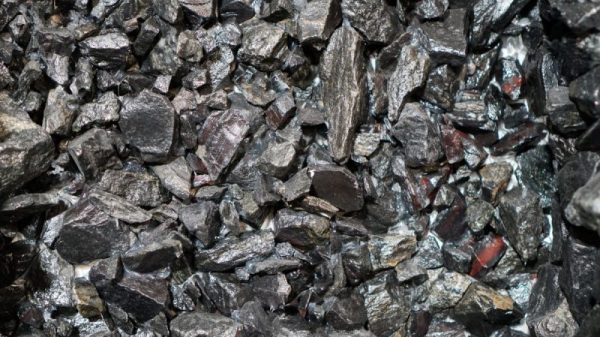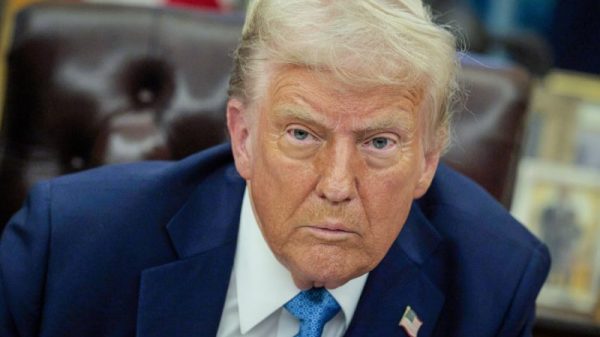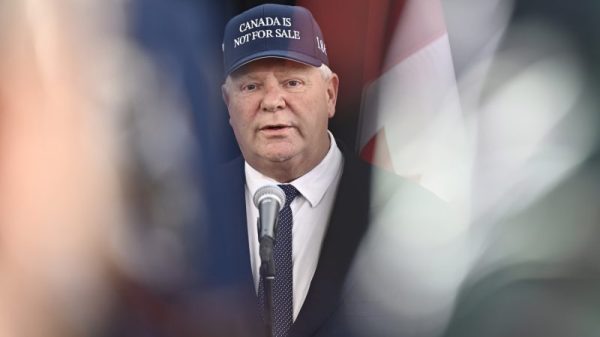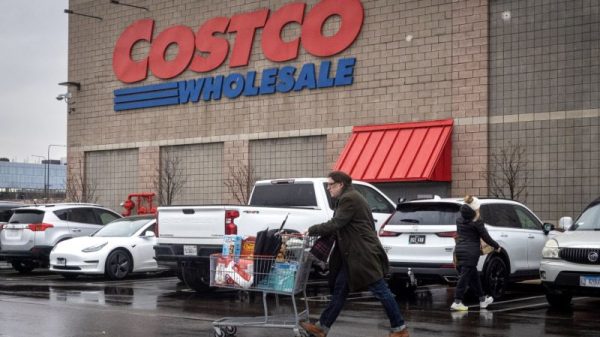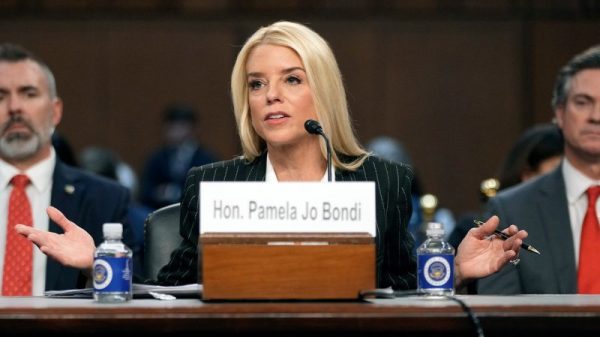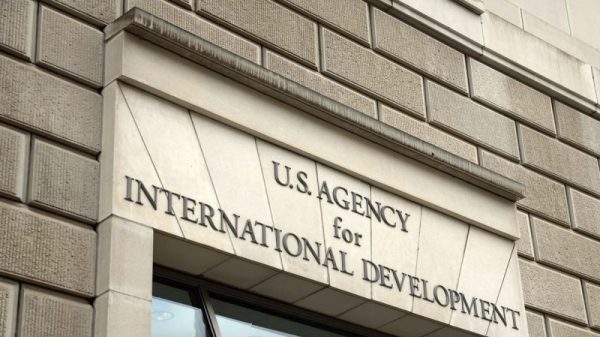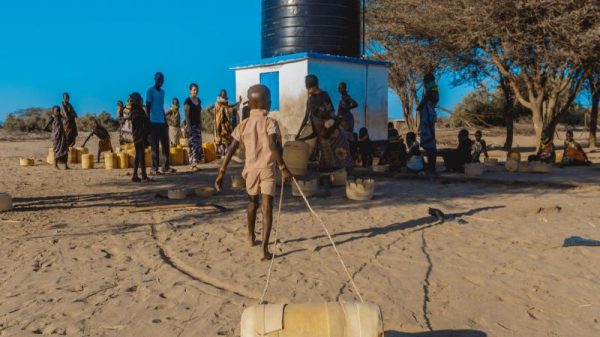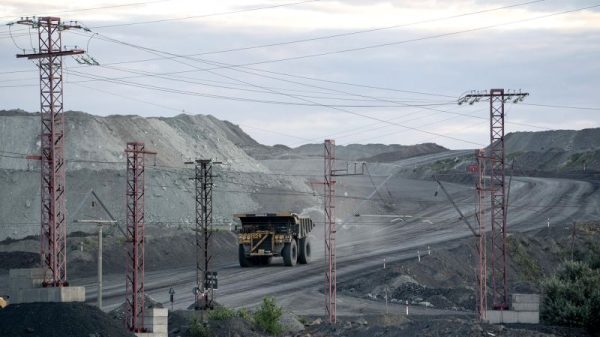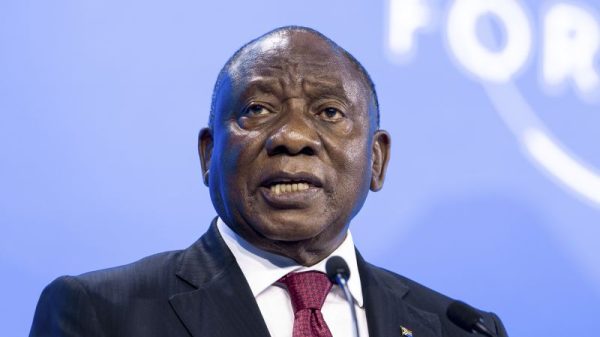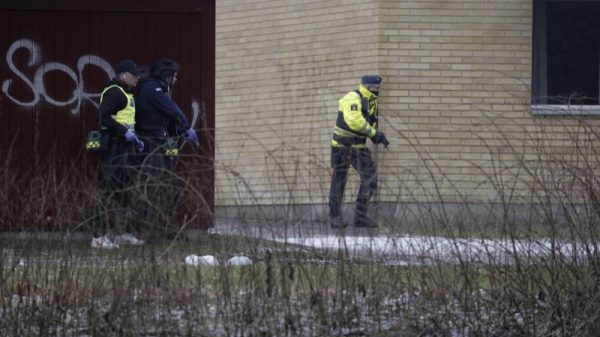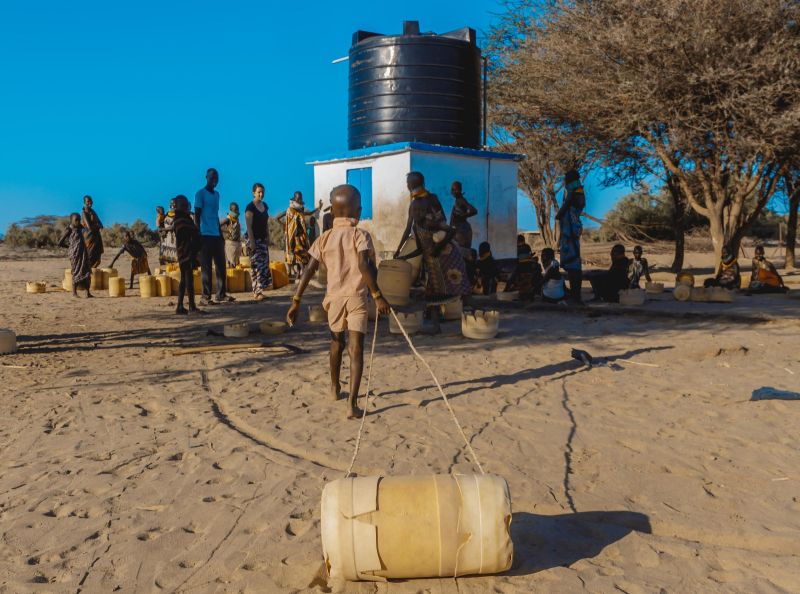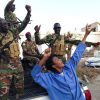Food distribution is being stopped. Health services are being shut down. Lifesaving aid is being tied up, with no way to disburse it.
These aren’t warnings of what’s to come, but examples of what aid workers say is the fallout of the Trump administration’s freeze on foreign aid and the gutting of the United States Agency for International Development (USAID).
“It’s heartbreaking for our beneficiaries, for whom this is life and death,” a USAID worker said.
“We have programs in Ukraine, we have programs in Burma, in Sudan, in some of the most complicated, dangerous places in the world, where there are just massive humanitarian needs,” the USAID employee said. “All of that is stopped. All of that is paused.”
“We do work that we think is really important for America’s power and stability abroad. We don’t do this work because it’s nice. We do it because it buys us much more, and it gives us much more than we are giving,” the USAID employee added. “It’s devastating to see this on a personal level, and I just think it’s so foolhardy on a global level.”
Meanwhile, thousands of Americans and people abroad are losing their jobs, as the entire aid industry reels from unpaid contracts.
These are a small selection of countries and programs severely affected by the aid freeze.
Without safe water, ‘people die, people are displaced’
USAID supports hundreds of projects focused on water security, in Jordan, the Democratic Republic of Congo, Ethiopia, India, and dozens of other nations. An estimated 4 billion people globally don’t have access to safe drinking water.
Without those programs, “animals die, people die, people are displaced,” said Evan Thomas, a professor of environmental engineering at the University of Colorado in Boulder.
He works on a project in Kenya that helps more than 1 million people access clean water, via 200 deep groundwater pumps installed and partially funded by USAID. Now, the program is unable to pay contracts with people hired to help maintain and repair the pumps.
“That entire program is now at risk of falling apart,” he said.
“When people don’t have water, when their livestock die, they become very stressed, and there are militias that are willing to take advantage of that stress and recruit for their own aims,” said Thomas, citing concerns about the rising influence of terror group Al-Shabaab in Kenya. “Undermining the access of people around the world to food and water and medicine is not going to make America more secure.”
“People don’t just sit around and die of thirst. They move. They migrate. And so this will create increased migration pressure everywhere in the world,” Thomas added.
Elsewhere in Kenya, other USAID-funded projects help improve care for HIV/AIDS patients are also being disrupted.
‘Feeding programs in Sudan are being shut down’
In Sudan, food kitchens funded by US aid are already shutting down, according to Jeremy Konyndyk, the president of Refugees International and a former USAID official.
It comes as the UN reports millions of families, many displaced, are experiencing crisis levels of hunger amid the country’s ongoing conflict.
“A lot of displaced people and a lot of people who are caught in famine and other crises could be harmed, if not gravely harmed, if not killed by this pullback of aid,” said Konyndyk, warning of the wide-reaching impact on refugees in Sudan, Syria and Gaza.
The US system for monitoring global famine, FEWSNET, which is used throughout the world, has also been shut down amid the Trump administration’s aid freeze.
“USAID has been a cornerstone of lifesaving initiatives in famine-stricken regions such as Ethiopia, Somalia, and Sudan, but the funding freeze leaves millions without access to essential services like health care, clean water, and shelter,” according to the executive director of the International Council of Voluntary Agencies, Jamie Munn.
Malaria cases will be ‘increasingly common occurrence’ in US without overseas projects
USAID spearheads a program to control and eliminate malaria in 24 of the hardest-hit African nations, including Mali, where malaria is the leading cause of mortality.
The aid agency funds and delivers antimalarial medications, test-kits and insecticide-treated bug nets, which save lives and help reduce the number of mosquitos.
Wendy Stone/Corbis/Getty Images
Malaria still kills about 600,000 people each year worldwide – most of them children under the age of five. But in the countries where the USAID-run President’s Malaria Initiative operates, the mortality rate has been cut in half since George W. Bush launched it in 2006.
“One of the reasons that we don’t have malaria in the US is because we fund and track malaria worldwide, for global health security,” the contractor said. “So, the cases that everyone saw in Florida this past year would become an increasingly common occurrence if we’re not funding driving down the parasite elsewhere.”
Afghanistan ‘faces severe repercussions’ for vulnerable women
Afghanistan “faces severe repercussions as the funding pause disrupts education programmes, healthcare delivery, and women’s empowerment initiatives, undermining long-term recovery and stability,” the International Council of Voluntary Agencies said in a statement.
Meanwhile, more than 6 million people in the country are surviving on “just bread and tea,” World Food Program (WFP) Country Director for Afghanistan Hsiao-Wei Lee told Reuters.
She is concerned about the aid freeze given that the WFP is already running on half the funding it needs in Afghanistan.
The WFP received 54% of its funding last year from the US, according to the UN.
Funding disrupted for Ukrainian schools and heating systems
USAID funds backup heating systems to schools and hospitals in 14 regions of Ukraine, which are invaluable amid Russia’s continued attacks on the country’s energy infrastructure, according to the USAID Ukraine account on ‘X.’ That account has since been taken offline.
USAID also assists with equipment delivery to energy workers, for example in the southern city of Odesa, which was recently hit in one of Russia’s assaults on Ukraine’s energy supplies.
Funding for these programs, as well as others focused on food security and veterans’ rehabilitation has been frozen, according to nonprofits in the country.
Lawmakers in the Ukrainian parliament have made a plea for continued USAID assistance, which also funds programs that enable thousands of children to continue their education and support children impacted psychologically by the war.
USAID funding further supports Ukrainian media outlets, in an effort to keep them going amid economic hardship and counter Russian media and propaganda.
“The grants have become a pillar of support for many domestic media outlets, as the advertising market, which helped the media survive, has not yet revived after the full-scale invasion of the Russian Federation,” the Ukrainian Parliament’s Committee on Humanitarian and Information Policy said last week.
It’s ‘going to destabilize the Venezuelan and Colombian border’
In Colombia, USAID funds and operates programs related to counter-narcotics, emergency food assistance, combatting deforestation and more.
Donors and organizations working on the ground have expressed huge concerns about the sudden drop off in aid, especially as the country faces an escalation in violence and a humanitarian crisis in the Catatumbo region, a strategic territory for drug production.
“We’ve tried to explain that (the aid freeze) is both going to destabilize the Venezuelan and Colombian border, but also destabilize the internal conflict, and that is one of the largest coca-growing areas in the country,” said one aid worker, highlighting concerns about an uptick in drug trafficking as well as local people suffering.
Non-governmental aid workers in the Latin America region have compiled a list of current USAID projects they say are designed to counter immigration and combat the influence of cartels, with that work now halted in Colombia, El Salvador, Guatemala and Honduras.
US funds 47% of global humanitarian aid
The impacts are far wider than a handful of countries, of course, with international nonprofits warning about consequences on every continent.
“I think the entire humanitarian system could collapse because we fund about 40% of it,” the USAID official added. According to UN officials, the US funds around 47% of global humanitarian aid.
The country is the largest provider of humanitarian assistance globally, although it accounts for less than 1% of the federal budget.
Speaking to the press in El Salvador on Monday, Rubio said the “functions of USAID” must align with US foreign policy and that it is “a completely unresponsive agency.”
When asked about the arguments that USAID’s work is vital to national security and promoting US interests, Rubio said, “There are things that USAID, that we do through USAID, that we should continue to do, and we will continue to do.”
Since it was established by Congress in 1961, USAID “has brought lifesaving medicines, food, clean water, assistance for farmers, kept women and girls safe, promoted peace, and so much more over decades, all for less than one percent of our federal budget,” Oxfam America President Abby Maxman said in a statement. “Ending USAID as we know it would undo hard-earned gains in the fight against poverty and humanitarian crisis, and cause long-term, irreparable harm.”

